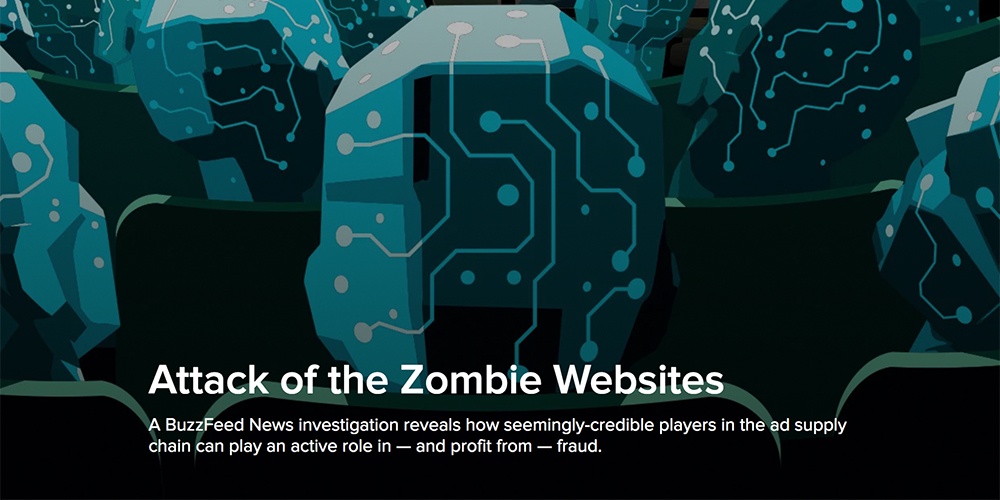
This week's review of ad fraud and quality in the digital advertising space.

"Some of the world’s biggest brands were ripped off by a digital fraud scheme that used a network of websites connected to US advertising industry insiders to steal what experts say could be millions of dollars," reported BuzzFeed News. Pixalate helped uncover this fraud scheme. "Pixalate referred to the group of properties it investigated as 'zombie sites' because of how they generate ad views without human action, and because it’s unlikely they could attract interest from a real audience," wrote BuzzFeed News.

Adweek reports on a "stealthy bot that’s using a new tactic to siphon millions of dollars away from sports websites including NFL team domains, ESPN and CBS Sports." The article adds: "Specifically, the bot is focused on video ad units, which typically have higher cost-per-thousand, or CPM, prices"

The IAB UK this week launched the "IAB Gold Standard" initiative "[i]n an effort to raise the standards in digital advertising and address the key issues facing the industry." One of the three prongs of the "Gold Standard" includes implementing ads.txt. "The deadline for implementing the three initiatives will be confirmed in the coming weeks. The IAB will encourage all of its members to commit to the IAB Gold Standard, intended to be an iterative programme to expand to cover other issues, for example audience measurement and viewability," the IAB wrote in a blog announcing the new standards.

The Drum opines on whether or not blockchain is the "cure ... for the ills of advertising." The conclusion? Blockchain should be thought of as the medicine, not the cure. “Fraud will always be a game, and staying in step with the bad actors is the best anyone can do regardless of the technology. With that said, blockchain in conjunction with well-designed business and product functions can certainly help,” said Ben Feldman, VP of technical operations at NYIAX, per the Drum.

The digital ad industry continues to face quality-based challenges from multiple angles. MediaPost has reported that a new study "estimates a loss of more than $15.8 billion in publisher revenue, up from nearly $11 billion last year" due to ad blocking. The study also "reveals [that] the use of ad blockers continues to rise in the U.S., with 26% of consumers now using them, up from 22% in 2016."
Sign up for our blog to stay updated with new stats, trends, and analysis on digital ad fraud.
*By entering your email address and clicking Subscribe, you are agreeing to our Terms of Use and Privacy Policy.
These Stories on Weekly Recaps
*By entering your email address and clicking Subscribe, you are agreeing to our Terms of Use and Privacy Policy.
Disclaimer: The content of this page reflects Pixalate’s opinions with respect to the factors that Pixalate believes can be useful to the digital media industry. Any proprietary data shared is grounded in Pixalate’s proprietary technology and analytics, which Pixalate is continuously evaluating and updating. Any references to outside sources should not be construed as endorsements. Pixalate’s opinions are just that - opinion, not facts or guarantees.
Per the MRC, “'Fraud' is not intended to represent fraud as defined in various laws, statutes and ordinances or as conventionally used in U.S. Court or other legal proceedings, but rather a custom definition strictly for advertising measurement purposes. Also per the MRC, “‘Invalid Traffic’ is defined generally as traffic that does not meet certain ad serving quality or completeness criteria, or otherwise does not represent legitimate ad traffic that should be included in measurement counts. Among the reasons why ad traffic may be deemed invalid is it is a result of non-human traffic (spiders, bots, etc.), or activity designed to produce fraudulent traffic.”

